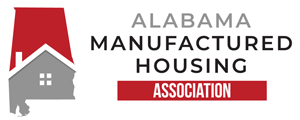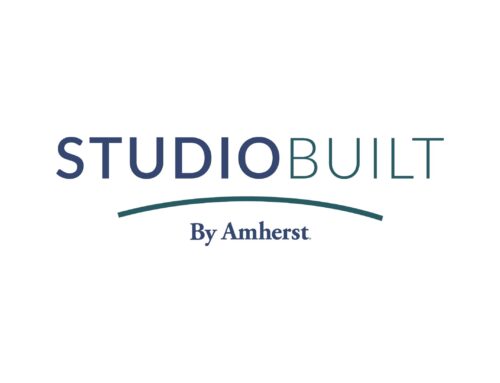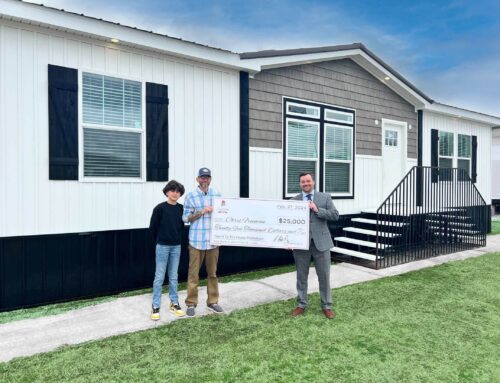
HUD Secretary Visits Alabama and Announces Changes to Code
In January, U.S. Department of Housing and Urban Development Secretary Dr. Ben Carson visited Alabama. While in town, he toured the Clayton Homes plant (of manufactured and modular homes) in Russellville and made an important announcement about some changes coming to the HUD code. The team from the Alabama Manufactured Housing Association was in attendance for those announcements, along with media and industry leaders, Gov. Kay Ivey, local legislators, leaders from Bevill State Community College and Northwest-Shoals Community College, members of the Alabama Manufactured Housing Commission, and more.
The visit was part of Dr. Carson’s nationwide bus tour to discuss regulation changes to manufactured homes and marked his first-ever tour of a manufactured housing plant. While in Alabama, Dr. Carson’s stay also included a tour of the CrossMod home – a new dwelling which is built using a combination of off-site and site-built construction methods. CrossMod is unique and beneficial in the sense that it allows homeowners the flexibility to finance and appraise their homes in ways similar to site-built homes.
As previously mentioned, Dr. Carson also announced several changes to the HUD code regarding manufactured housing while in the area. According to Dr. Carson, HUD is taking the final steps to approve the following changes to the code that have been recommended by the Manufactured Housing Consensus Committee.
- Removing the requirement for manufacturers to follow the Alternative Construction (AC) approval process for add-on features, such as garages and carports.
- Removing a regulation about formaldehyde notices in manufactured homes.
- Adding new rules to require carbon monoxide detectors.
- Bringing more manufactured homes to urban spaces and communities.
Carson said his regulation changes to manufactured homes would speed up the process and limit red tape manufacturing companies have to jump through to get a manufactured home up and running.
Manufactured housing is a wonderful affordable housing option for many individuals and families who might not be able to afford a home without the savings manufactured homes bring to the table. “It’s an opportunity for that young couple to be able to afford something that’s nice that accumulates equity for them and they don’t have to live in their grandmothers basement,” said Carson, according to a report by WAAY TV.
Clayton homes CEO Kevin Clayton also addressed the crowd, saying these changes will help them make more affordable homes for people more quickly.
Carson’s changes require that manufactured homes be equipped with carbon monoxide detectors, bypassing state regulations. “We lose, you know, a couple hundred people every year from carbon monoxide, and it’s the silent killer,” Carson said, according to a report by WAFF 48. “You have no way of knowing that it’s there and all of the sudden, boom. And the technology is now easy to incorporate into the fire and smoke detectors.” He hopes that this regulation change will make manufactured homes even safer places to live.
HUD’s Office of Manufactured Housing Program oversees the construction statutes, standards, and regulations of manufactured housing contained in the federal Manufactured Home Construction and Safety Standards. Manufactured housing provides nearly 10 percent of the total single-family housing stock, giving more than 22 million Americans a place to call home.
HUD launched the “Driving Affordable Housing Across America Bus Tour” in January and will make stops in various local communities for events and discussions focused on the need for increased affordable housing.
The bus tour is a part of the work Dr. Carson’s undertaking as the Chair of the White House Council on Eliminating Regulatory Barriers to Affordable Housing (established in 2019). The Council’s eight Federal member agencies are engaging with governments at all levels—State, local, and Tribal—and other private-sector and non-profit stakeholders on ways to increase the housing supply so more Americans have access to affordable housing.
For more information you can visit the HUD website and follow along on social media using the hashtag #DrivingAffordableHousing. For additional resources surrounding affordable housing, visit the AMHA website.






